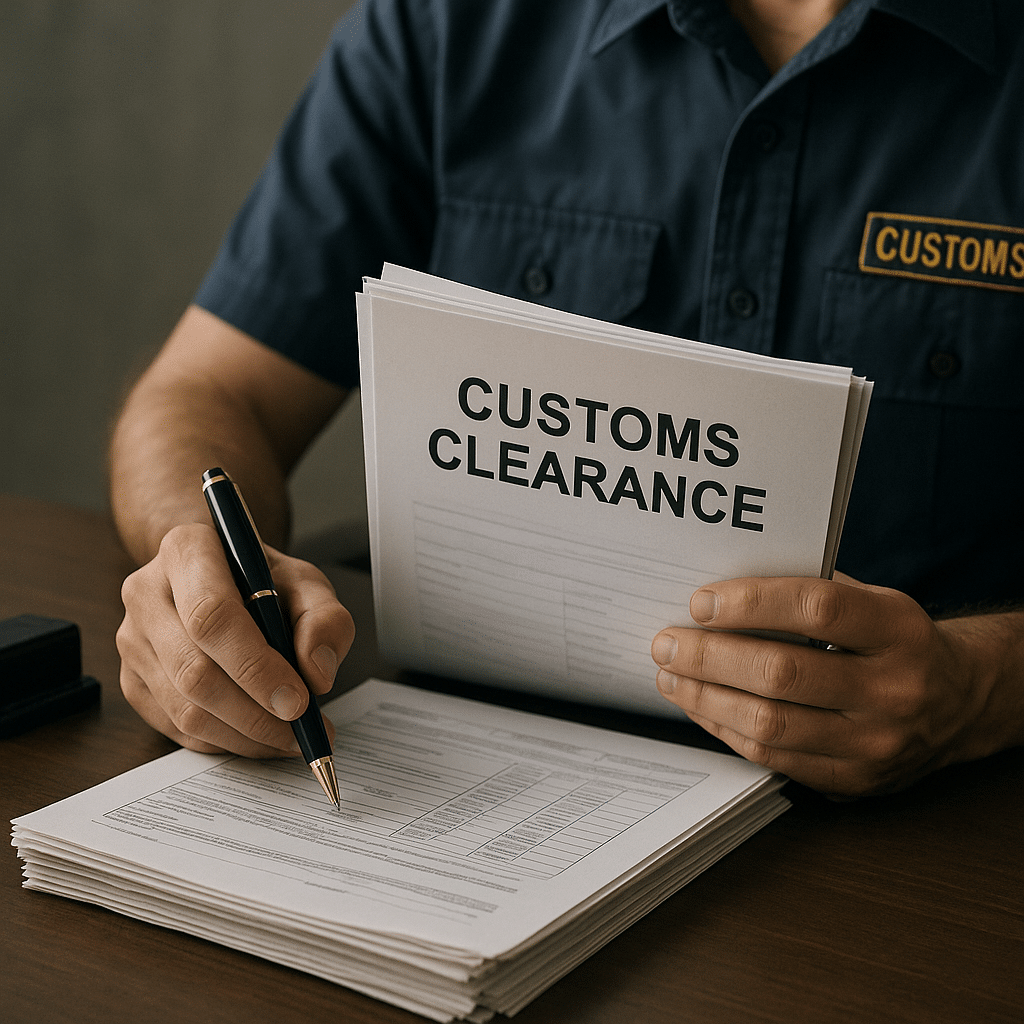In international maritime trade, the smooth movement of goods doesn’t depend solely on transportation. One of the most critical — and often underestimated — processes is customs clearance. It plays a vital role in ensuring that cargo complies with all legal and regulatory requirements when crossing international borders.
What is Customs Clearance?
Customs clearance is the process of preparing and submitting the documentation required to facilitate the import or export of goods. It includes declaring cargo to the relevant authorities, paying applicable duties and taxes, and securing permission for goods to enter or leave a country.
This process typically involves:
- Commercial invoices
- Packing lists
- Bills of lading
- Certificates of origin
- Import/export licenses (if required)
Why is Customs Clearance Important?
Failure to properly manage customs procedures can lead to:
- Shipment delays
- Fines and penalties
- Increased costs
- Seizure of goods
For maritime logistics in particular, timely customs clearance is crucial to avoid demurrage charges and port congestion. The efficiency of this process directly affects delivery timelines and customer satisfaction.
Key Stakeholders in the Process
- Customs brokers: Licensed professionals who handle customs documentation and clearance on behalf of importers/exporters.
- Shipping agents: Coordinate between the port, the carrier, and customs to ensure cargo movement.
- Freight forwarders: May assist with or manage the customs process as part of their logistics services.
Challenges in Maritime Customs Clearance
- Complex and evolving regulations
- Country-specific documentation requirements
- Risk of misclassification of goods
- Language and administrative barriers
How to Ensure Efficient Customs Clearance
- Work with experienced customs brokers.
- Ensure all documents are accurate and complete.
- Classify goods properly using the HS code.
- Keep up with changing import/export regulations.
Example Scenario
A company exporting steel billets from South America to Asia must ensure that their cargo is declared with the correct HS code, and that the bill of lading matches the commercial invoice. A delay in customs due to incorrect documentation can result in costly storage fees at the port.
Conclusion
Customs clearance is a critical component of maritime logistics. Companies that understand its importance and manage it proactively are better positioned to avoid costly disruptions and ensure successful international shipping operations.
Learn more about our maritime logistics services
Need support with international customs procedures? Contact our maritime logistics experts


